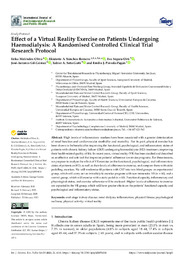Por favor, use este identificador para citar o enlazar este ítem:
https://hdl.handle.net/11000/34584Registro completo de metadatos
| Campo DC | Valor | Lengua/Idioma |
|---|---|---|
| dc.contributor.author | MELÉNDEZ OLIVA, ERIKA | - |
| dc.contributor.author | Sánchez Romero, Eleuterio A | - |
| dc.contributor.author | Segura-Ortí, Eva | - |
| dc.contributor.author | Gil-Gómez, José-Antonio | - |
| dc.contributor.author | Soto Goñi, Xabier A. | - |
| dc.contributor.author | POVEDA-PAGÁN, EMILIO J. | - |
| dc.contributor.other | Departamentos de la UMH::Patología y Cirugía | es_ES |
| dc.date.accessioned | 2025-01-16T17:34:29Z | - |
| dc.date.available | 2025-01-16T17:34:29Z | - |
| dc.date.created | 2023-02-25 | - |
| dc.identifier.citation | Int. J. Environ. Res.Public Health 2023, 20, 4116 | es_ES |
| dc.identifier.issn | 1660-4601 | - |
| dc.identifier.issn | 1661-7827 | - |
| dc.identifier.uri | https://hdl.handle.net/11000/34584 | - |
| dc.description.abstract | High levels of inflammatory markers have been associated with a greater deterioration of renal function and cardiovascular morbidity and mortality. For its part, physical exercise has been shown to be beneficial in improving the functional, psychological, and inflammatory states of patients with chronic kidney failure (CKF) undergoing haemodialysis (HD) treatment, improving their health-related quality of life. In recent years, virtual reality (VR) has been studied and described as an effective and safe tool that improves patients’ adherence to exercise programs. For these reasons, we propose to analyse the effect of VR exercise on the functional, psychological, and inflammatory states of patients on HD, as well as their levels of adherence to exercise, and compare them with static pedalling exercises. We will randomise 80 patients with CKF into two blind groups: an experimental group, which will carry out an intradialytic exercise program with non-immersive VR (n = 40), and a control group, which will exercise with a static pedal (n = 40). Functional capacity, inflammatory and phycological status, and exercise adherence will be analysed. Higher levels of adherence to exercise are expected in the VR group, which will have greater effects on the patients’ functional capacity and psychological and inflammatory status. | es_ES |
| dc.format | application/pdf | es_ES |
| dc.format.extent | 14 | es_ES |
| dc.language.iso | eng | es_ES |
| dc.publisher | MDPI | es_ES |
| dc.rights | info:eu-repo/semantics/openAccess | es_ES |
| dc.rights | Attribution-NonCommercial-NoDerivatives 4.0 Internacional | * |
| dc.rights.uri | http://creativecommons.org/licenses/by-nc-nd/4.0/ | * |
| dc.subject | end-stage kidney disease | es_ES |
| dc.subject | renal dialysis | es_ES |
| dc.subject | inflammation | es_ES |
| dc.subject | physical fitness | es_ES |
| dc.subject | psychological wellness | es_ES |
| dc.subject | physical activity | es_ES |
| dc.subject | virtual reality | es_ES |
| dc.title | Effect of a Virtual Reality Exercise on Patients Undergoing Haemodialysis: A Randomised Controlled Clinical Trial Research Protocol | es_ES |
| dc.type | info:eu-repo/semantics/article | es_ES |
| dc.relation.publisherversion | 10.3390/ijerph20054116 | es_ES |

Ver/Abrir:
Effect of a Virtual Reality Exercise on Patients Undergoing Haemodialysis....pdf
2,52 MB
Adobe PDF
Compartir:
 La licencia se describe como: Atribución-NonComercial-NoDerivada 4.0 Internacional.
La licencia se describe como: Atribución-NonComercial-NoDerivada 4.0 Internacional.
.png)